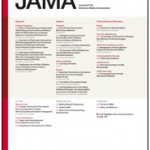Medicare Beneficiaries with Multiple Chronic Conditions 99 Times More Likely To be Hospitalized
Medicare beneficiaries with four or more chronic conditions such as asthma, arthritis, diabetes, or hypertension are 99 times more likely to experience one or more potentially preventable hospitalizations than those without a chronic condition.
Study: Sunshine May Slow Weight Gain and Onset of Diabetes
Exposure to moderate amounts of sunshine may slow the development of obesity and diabetes, a study suggests.
Dipping Blood Sugar Levels Cause Surprisingly Irregular Heart Rhythms in Diabetics
Dangerous overnight blood sugar levels often go undetected and cause prolonged periods of heart rhythm disturbances in older patients with Type 2 diabetes.
Link Between Diabetes Drug Actos (Pioglitazone) and Bladder Cancer Risk Scrutinized
Researchers analyzed 200,000 patients to examine the suspected link between pioglitazone (Actos), which is used to treat diabetes, and an increased risk of bladder...
Kids Need Repeated Messages, Support On Healthy Eating
Middle schoolers exposed to an intensive campaign urging them to eat more fruits and vegetables actually did so, but not enough to improve their overall eating patterns.
Special Chiropractic Adjustment Lowers Blood Pressure
A study of individuals with a misaligned Atlas vertebraand high blood pressure showed that after a one-time specialized chiropractic adjustment, blood pressure decreased significantly.
Babies Fond of Salt Have Higher Blood Pressure, a Grandparent with Hypertension
Within three days of birth some babies exhibit a unique response to salty taste – and the response is strongest in babies who have at least one grandparent with a history of hypertension.
More TV Time Means Bigger Waist Line For Children
Children who spend more total time watching television, including those who eat meals in front of the tube, are more likely to be overweight, suggests a study published in the June issue of the Journal of Developmental and Behavioral Pediatrics.
Antipsychotic and Anti-depressant Drugs Given to Children Increases Diabetes Risk
Antipsychotic drugs prescribed to children and adolescents with disruptive behaviors, such as ADHD, schizophrenia or bipolar disorder, can cause Type 2 diabetes and obesity....
Weight Loss in Obese Adults Reduces Asthma Severity
Study finds weight loss in obese adults can reduce severity of asthma. Behavioral weight loss program associated with improvements in airway hyperresponsiveness and quality...
Common Heart Drug’s Link to Diabetes Found by Researchers
Researchers may have found a novel way to suppress the devastating side effect of one of the worlds' most widely used drugs to lower cholesterol and prevent heart disease.
Cardiotrophin 1 Shows Promising Results for Treatment of Metabolic Syndrome and Obesity
Scientists have discovered that cardiotrophin 1, a protein synthesized by muscle cells and adipose tissue, has a marked effect on fat and glucose metabolism.
Diabetics with Cancer: Get Your Act Together or Sugar Levels Will Kill You Before...
Diabetics are at a higher risk of getting cancer and uncontrolled high blood sugar is more likely to kill them and impairs their immune...
Obesity in Preschool? It’s Not Unusual, UB Study Finds
Children are becoming obese as young as 3 years old, and obese 10-year-olds are showing abnormal liver function and abnormally high insulin levels, which may lead to type 2 diabetes.
Food Portions May Explain the ‘French Paradox’ of Rich Foods and a Thin Population
Perplexing disconnect between France's rich cuisine and slender population can be explained in part by portions that are significantly smaller than those in America.
Garlic Does Not Appear to Lower Cholesterol Levels; May Still Possess Cardiovascular Benefits
Three forms of garlic, including raw garlic and two types of commercial garlic supplements, did not significantly reduce low-density lipoprotein (LDL or "bad") cholesterol during a six-month trial.







